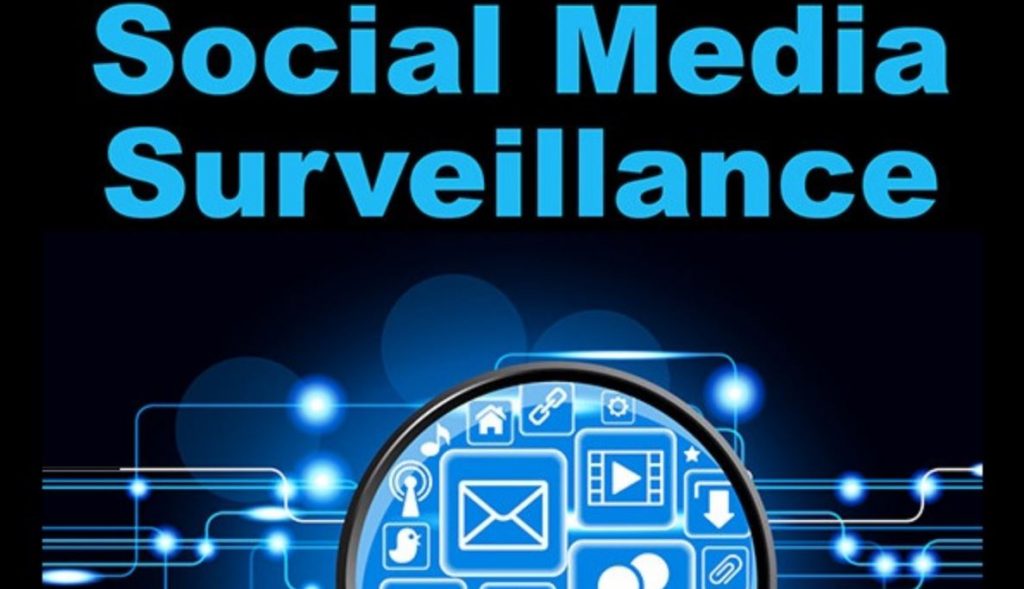 By Joe Wright
By Joe Wright
A whole host of reasons are being given to justify the increased surveillance and data mining of social media and the wider Internet itself: terrorism, suicide prevention, precrime detection of violence and other illegal acts, and even teenage alcohol abuse.
This is being done at the federal level most egregiously with the declaration today, December 1st, that the feds have now been given the green light to hack millions of private devices with only a single warrant. It has the potential to form massive data sweeps that collect information from the many on the suspicion of the few.
One of the safeguards against such federal intrusion is state and local government resistance; and while this trend of pushback is indeed developing, too many local police departments are willing to treat their their citizens as guilty until proven innocent. One of the key tools of this spreading surveillance state has been social media and Internet monitoring software.
Many police departments and the federal government have taken the position that what can be found on social media is information from participants released willingly into the public domain, so it’s fair game for analysis. However, as just one example in California revealed, these programs are being put in place without public notice, and the instances of abuse are already mounting … especially when it comes to monitoring dissent.
The American Civil Liberties Union of California has obtained thousands of pages of documents pertaining to California law enforcement agencies secretly purchasing social media surveillance software. The ACLU of California filed open records requests with 63 police departments, sheriffs, and district attorneys across California and found that at least 20 agencies across California are in possession of social media monitoring tools.“We found no evidence in the documents of any public notice, debate, community input, or lawmaker vote about use of this invasive surveillance,” the ACLU writes. “And no agency produced a use policy that would limit how the tools were used and help protect civil rights and civil liberties.”
The ACLU reports that tools like MediaSonar, X1 Social Discovery, and Geofeedia “have been marketed in ways to target protesters.” The records show that Geofeedia’s marketing materials refer to unions and activist groups as “overt threats,” and suggest the product can be used in ways that target activists of color. At least 13 California law enforcement agencies have used or acquired Geofeedia.
(Source) [emphasis added]
An announcement from the Boston PD demonstrates that they appear willing to go to a whole new level of monitoring, which goes far beyond social media and would include just about anything that appears on the Web.
The Boston Globe recently reported on the capabilities of this new software that will cost taxpayers $1.4 million for the privilege of having their free speech subjected to scrutiny and their civil liberties undermined:
The software would be able to search blogs, websites, chat rooms, and social media platforms such as Facebook, Twitter, Instagram, and YouTube. It would provide law enforcement officials with an address of where the content was posted and allow police to create a “geo-fence” that would send alerts when new posts are made within an area that meets specified search criteria.
(emphasis added)
How to Disappear Off the Grid Completely (Ad)
In addition to the troubling concept of having Big Brother looking over the shoulder of anyone typing anything anywhere on the Internet is the stated desire to establish connections between users, opening people up to guilt by association merely by finding themselves within a thread of discussion that may have drawn the attention of the alogrithmic overlord:
According to department records, the proposed software will be able to collect data and alert law enforcement “in near-real-time to significant or threatening social media or online open source content based on user input.” The software will also be able to augment use of terms, slang, and verbiage relevant to the user, and determine relationships among various users.
(emphasis added)
As Kade Crockford, director of the Technology for Liberty Program at the American Civil Liberties Union of Massachusetts, correctly highlights, there is a lot of noise on the Internet and the completely innocent use of certain words and phrases can draw a target on just about anyone, while also calling into question the effectiveness of such data sweeps:
Take, for example, the ways in which “bomb” is used, she said: “That party was the bomb.”
“There is a lot of noise on the Internet, and the vast majority of it has nothing to do with crime,’’ she added.
 The Boston PD is currently in the solicitation phase of seeking this technology and has set December 5th as the date to choose a supplier. It would behoove anyone living in Boston who has concerns about the threat to their privacy and right to assembly to immediately express your demands to the Boston PD in the hope that they will pull this program before it is implemented.
The Boston PD is currently in the solicitation phase of seeking this technology and has set December 5th as the date to choose a supplier. It would behoove anyone living in Boston who has concerns about the threat to their privacy and right to assembly to immediately express your demands to the Boston PD in the hope that they will pull this program before it is implemented.
And for people everywhere, it is time to engage your local police and ask them point blank if they already have – or plan to have – this technology at their disposal. It has been shown time and time again that those who seek to undermine liberty and abuse their power rarely encourage open debate.
Please share this article and help people take action against the growing threat of mass surveillance and the development of a pre-crime society.
Hat Tip: MassPrivateI
Joe Wright’s work can be found at ActivistPost.com. You may freely republish this article in part or in full with author attribution and source link.

Or in other words if you are a social media user they just want to spy on you and they’d prefer that it would be unknown to you as well…
looks like they have already taken over this site
I think the frogs are almost boiled.